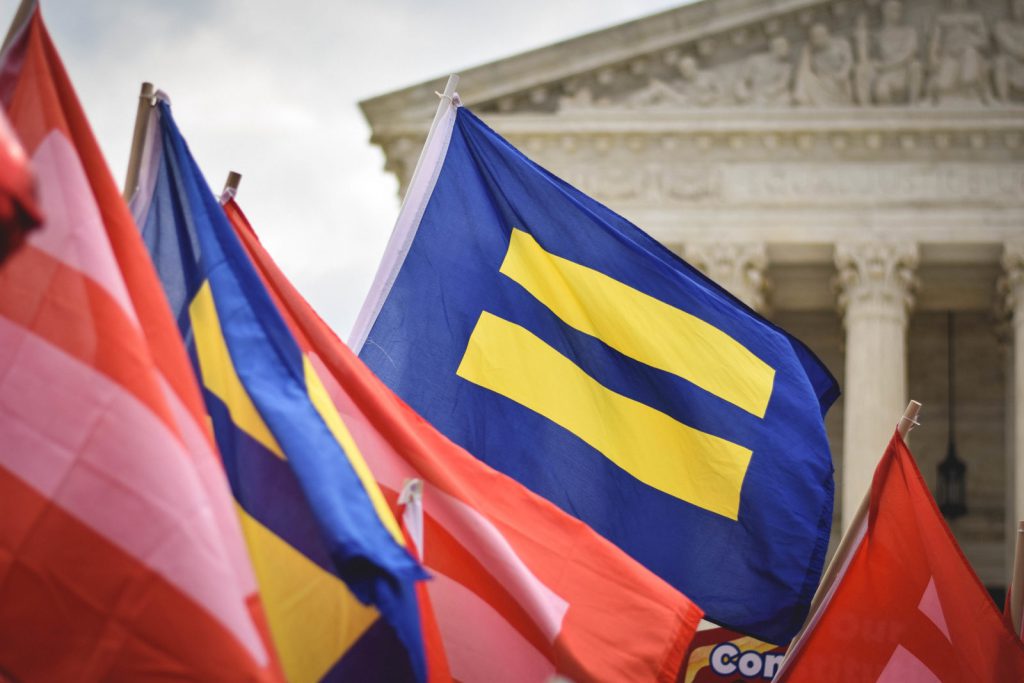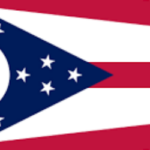
Published May 30, 2017
The science-deniers are running the LGBTQ show over at the Illinois Department of Children and Family Services (DCFS), and dissenters will not be tolerated.
The department’s new “enhanced” policies promoting the “well-being of Lesbian, Gay, Bisexual, Transgender and Queer/Questioning (LGBTQ) children and youth in the Department’s care” ratchet in one direction only: encouraging children towards LGBTQ identities. DCFS has drawn a rainbow-colored line in the sand, announcing it “will not tolerate exposing LGBTQ children and youth to staff/providers who are not supportive of children and youths’ right to self-determination of sexual/gender identity.”
Let’s repeat that: the state of Illinois will not tolerate “exposing” the vulnerable children in its care to people who believe human beings are either male or female and cannot “become” the other. No matter that sexual difference is a scientific fact, or that billions of sane people across the world acknowledge it.
Illinois has decreed its own “truth” about the human person and served notice that it will muzzle the speech and religious beliefs of employees, caregivers, professionals, and cooperating agencies who think otherwise. Here’s the story.
Let’s Look at the Policies In Detail
On May 6, 2017, the director of Illinois’ child welfare agency (DCFS), George Sheldon, “signed enhanced department procedures” setting “mandatory minimum standards for LGBTQ children under its authority (See Appendix K in this May 11, 2017 document. Quoted passages in this article are from Appendix K unless otherwise specified).
Of course, everyone supports ensuring the safety and wellbeing of all children, but the devil is in the details. The new DCFS policies are less about safety and wellbeing and more about using state power to “overrule” basic, empirical (and common sense) truths about human beings and to replace them with ideological assertions that validate adult feelings rather than benefit children.
Designed with American Civil Liberties Union assistance, the policies are problematic not only for the vulnerable children in state care but also for the kin, foster families, caseworkers, volunteers, and others trying to assist them. Consider the effects on staff and volunteers, who must pass an ideological test—to see if they are sufficiently “LGBTQ-affirming”— to mentor, serve, or care for the state’s most vulnerable children.
According to the gender guardians at DCFS, all children have a “right to self-determination of gender and sexual orientation,” and individual choices about “sexual orientation, gender identity, and gender expression” should be viewed as “developmental milestones, not problematic behavior.” The role of adults is simply to “facilitate exploration of any LGBTQ matters through an affirming approach…by being open, non-judgmental, and empathic.”
Thus, when children or adolescents “explore/express a sexual orientation other than heterosexual and/or a gender identity that is different from the child/youth’s sex assigned at birth,” DCFS “staff, providers, and foster parents” must “support and respect” the child’s exploration “without any effort to direct or guide them to any specific outcome for their exploration.”
In other words, all DCFS staff and volunteers must communicate a uniform message to the children and adolescents in their care: it’s perfectly normal to identify as transgender or gender non-conforming, and just as conducive to a child’s wellbeing to be transgender as to identify with one’s actual sex.
For the true believers behind Illinois’ new child welfare policies, the state’s sacred task is to “facilitate” children’s “exploration” of the rainbow-colored, imaginary world of gender-as-you-like-it. Names, pronouns, and body parts are tried on or swapped out like fashion accessories to match the shifting feelings of “gender-fluid” (otherwise known as “confused”) children.
It’s a fantasyland, where gender explorers are championed as brave and authentic, adults genuflect before the mythical wisdom of “trans” children expressing their “true gender selves,” and “transitioning” always brings peace and happiness. If only it were true. The DCFS, however, has kicked truth to the curb in blind fealty to the demands of the LGBTQ adult community.
Human beings are, in fact, either male or female; we differ in reproductive function, bodily structure, and in differential gene expression (for thousands of genes, according to a 2017 Israeli study). One of the great advances in modern medicine has been the development of sex-specific protocols for disease diagnosis, prevention, and treatment. Sexual difference matters. It’s real. And it’s permanent—painful, conflicted feelings notwithstanding.
Tolerance Is So ‘90s
Dissenting voices, such as employees, volunteers, and foster parents who rely on science and common sense, are not welcome in trans utopia. The new DCFS policies warn staff members that they must “[p]rovide supportive and affirming care regardless of one’s personal attitudes, beliefs, preconceptions and/or judgments, if any, surrounding matters of sexual orientation, gender identity, and gender expression.”
If that proves to be a hard swallow, then “[i]ndividuals who have difficulty meeting this standard for personal reasons should seek assistance from supervisors and the LGBTQ Coordinator,” who will be happy to re-educate the noncompliant. Jobs are on the line—staff members will be “disciplined” and risk “discharge” if they “impose personal, organizational or religious beliefs on LGBTQ children, youth and families” or if their “personal beliefs impact the way individual needs of children/youth or families are met.”
In addition to requiring volunteers and staff to abide by the department’s “LGBTQ-affirming” policies, DCFS “will not contract with private agencies” unless the contractor’s policies are “at least as extensive” as DCFS policies, including provisions that the contractor’s employees may face termination for violating LGBTQ policies. By fiat, then, the state’s child welfare agency is a closed shop, populated with closed minds, and intends to keep it that way. No believers in the binary need apply.
Even placement decisions—including placement with “kin or fictive kin”—are subject to an ideological test that measures the caregivers’ “attitudes and beliefs” about sexual orientation and gender identity, and assesses whether they are sufficiently “LGBTQ-affirming”:
If a child or youth is known to be LGBTQ, the caseworker is responsible for determining prior to placement, the caregiver’s attitudes and beliefs regarding sexual orientation, gender identity/gender expression. In no instance should LGBTQ children/youth be placed with a non-affirming caregiver who is opposed to sexual orientations that differ from the caregiver’s own. Nor should LGBTQ children and youth be placed with caregivers who are unwilling/unable to support children and youth whose gender identity or gender expression differs from traditional expectation…If a caregiver is found to be non-affirming or is otherwise in violation of the nondiscrimination requirements in Appendix K, the youth’s DCFS caseworker must take immediate action to intervene and take appropriate corrective action and contact the LGBTQ Coordinator. (302- Appendix K, section e).
Here Comes the LGBTQ Czar to Oversee Kids’ Sexuality
To get everyone on the same trans-pushing page, the new enhanced policies mandate training in “LGBTQ competency” for staff, providers, and foster parents, regardless of whether they currently serve LGBTQ kids:
All DCFS/POS staff, providers and foster parents are required to be culturally competent in serving the needs of LGBTQ children and youth…Therefore, any person who is involved with DCFS children/youth will complete mandatory training in LGBTQ competency. Specifically, LGBTQ training will be part of the retraining Child Welfare license …part of PRIDE training, and …DCFS core training. DCFS and POS staff must complete additional, mandatory standalone LGBTQ training at least once per year. (302- Appendix K, section a)
Partner agencies also must include LGBTQ training for volunteers and employees. “Annual training in LGBTQ competent care is required for all child welfare providers, whether or not they believe they…currently care for any LGBTQ child/youth.” And training will be ongoing throughout the year. It’s LGBTQ indoctrination, early and often, whether you need it or not.
It gets worse. The new policies empower the state’s LGBTQ czar (officially known as the “State LGBTQ Coordinator”) oversee the sexual orientation and gender identity of all children and youth under the state’s care. Every child in the system is given “LGBTQ appropriate” sexual health resources and put through LGBTQ-oriented sexual health education (because any child could be LGBTQ, after all).
Protocols require caseworkers to contact the LGBTQ czar “immediately” about any sexual orientation or gender identity issues involving any child in the system: the LGBTQ coordinator must be notified “whenever questions or concerns surrounding a child or youth’s sexual orientation or gender identity arises, even if the child does not identify as LGBTQ.”
Don’t Tell Mom and Dad
DCFS says that the child’s right to privacy prevents disclosing the child’s sexual orientation or gender identity to anyone, including family members and other staff, unless the child gives permission. But there’s one glaring exception: the state LGBTQ coordinator has an automatic right to meddle and must be notified (Sec. k6.)
State policies also require staff to consult the LGBTQ czar for referrals related to a child’s mental health or medical issues related to “gender transition.” These referrals funnel children towards professionals who are on board with gender ideology: mental health referrals only go to professionals “experienced in serving LGBTQ youth” and medical referrals for “transgender medical care [puberty-blockers/hormone therapy]” only go to professionals “who are recognized as medically competent in the care of transgender child[ren]/youth.”
When a child is in state care, parents have no say in whether the child will receive puberty blockers or hormone treatments, as long as two physicians, or a physician and a counselor “who is culturally competent in transgender health care,” sign off. If a child’s “permanency goal” is to return home to the care of his parents, then the state will notify the parents that hormone therapy is being initiated, but parental permission is not required.
The DCFS policies cover other situations for LGBTQ-identified youth, including overnight housing (according to gender identity), body searches on transgender youth (only “cross-gender” personnel, meaning same-sex, are permitted to conduct searches), and gender expression in secure facilities or group care situations (child’s gender expression should be accommodated).
The Joys of Bountiful Plaintiffs
Finally, the DCFS policies require that all LGBTQ children and youth be informed of their “rights” to self-determination in sexual orientation and gender identity, to be free from harassment and “discrimination,” and to have their “service needs” met. Further, if they encounter problems, they are “advised to contact the LGBTQ Coordinator along with the DCFS or POS Administrator for assistance. Children and youth also have the right to contact their Guardian Ad Litem, Lambda Legal, or the American Civil Liberties Union (ACLU).”
Not only do these policies encourage a litigious mindset (at least among ACLU attorneys and professional youth “advocates”), they also exert a chilling effect on DCFS staff, volunteers, foster parents, and others whose “speech and behavior” will be monitored and evaluated according to ideological criteria by the state of Illinois.
Forget the democratic process. Forget free speech, freedom of religion, and the conscience rights of American citizens. Forget the welfare of vulnerable children. The state of Illinois heels to the commands of LGBTQ activists; it has embraced a new creed based on the LGBTQ vision of the human person. The only winners are progressive activists and lawyers eager to fill their litigation dockets. The losers? Illinois’ most vulnerable children.
Mary Rice Hasson is an attorney and a fellow at the Ethics and Public Policy Center in Washington DC.









